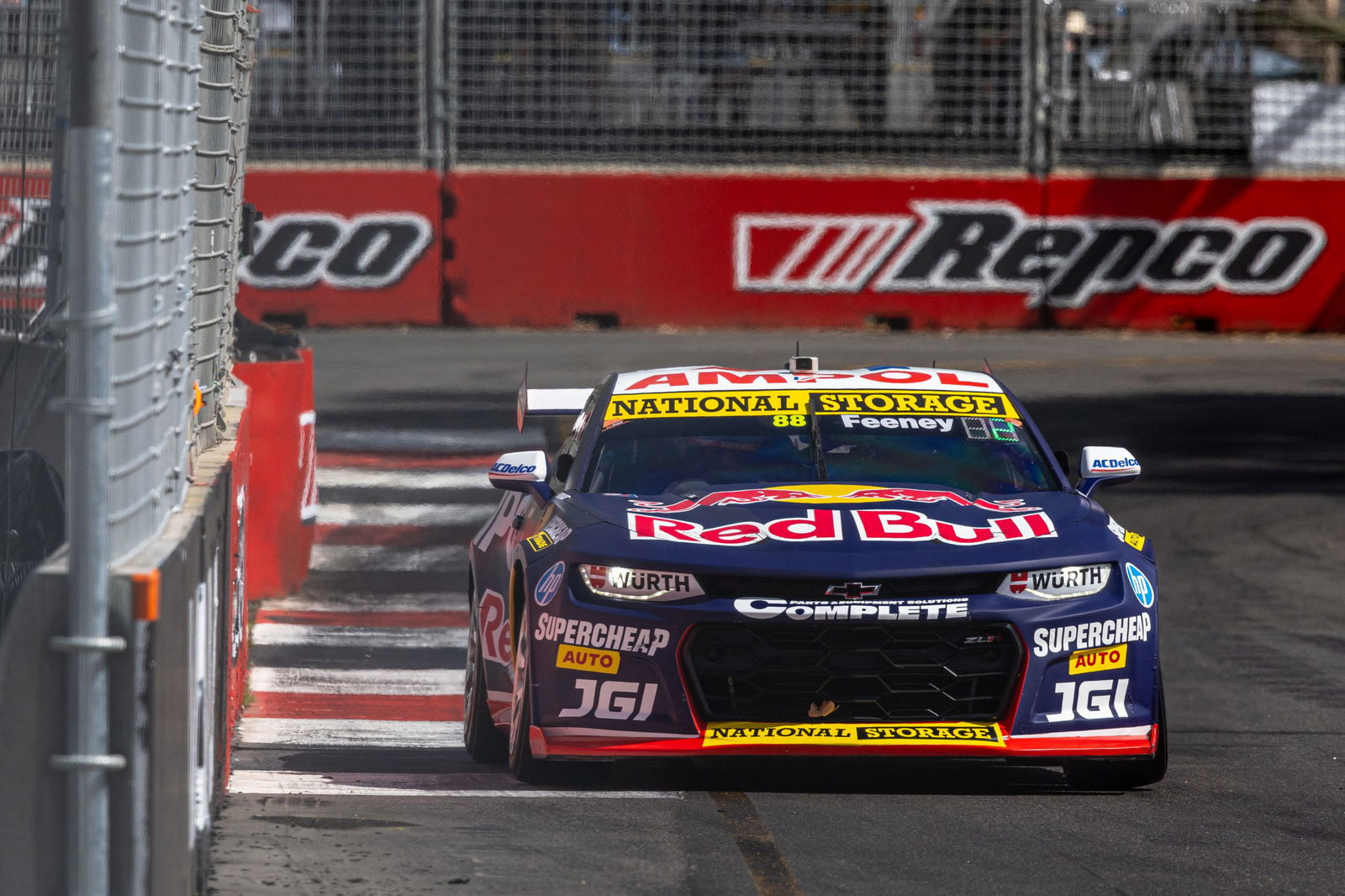

Feeney crossed the line first in the second leg of the VAILO Adelaide 500, but was classified seventh thanks to a pair of penalties accrued in the final stint of the race.
There was a snowball effect to the penalties which started with an unsafe release during the second round of stops.
Leader Chaz Mostert and second-placed Feeney pitted together, with Triple Eight looking to use a slightly shorter fill time to vault Feeney into the lead.
The plan didn’t quite work, though, with the team releasing Feeney into the path of Mostert in pit lane.
Feeney did lead Mostert out of the lane after contact, before trying to avoid the inevitable penalty by pulling over to let Mostert past.
Due to the strict safety rules regarding pit lane contact the redress didn’t suffice and Feeney copped a 15-second penalty despite ceding track position.
That ultimately led to a lunge on Mostert as he tried to clear him and make ground, which earned another 15-second penalty.
In hindsight the redress call was futile given Feeney was penalised anyway, and directly led to the second incident and penalty.
That was something recognised by Triple Eight managing director Jamie Whincup, who confirmed the decision was made by the driver.
“He made that call by himself,” said Whincup when quizzed on the topic by Speedcafe.
“It’s useless at the end of the day, because you’re always going to get at a penalty.
“He recognised that there was an issue, he redressed, but he probably should have just got on with it and copped the 15 seconds, because he was very close to coming second in that race after a 30-second penalty [after] the scrap that went on between [Mostert, Tom Randle] and [Will Davison].
“He probably should have got on with it.”
Redresses are commonplace with on-track incidents and often seen by race control as a tidy solution in comparison to issuing penalties.
Unsafe releases are subject to stricter penalties, however, given the amount of people occupying pit lane at any given time.



















Discussion about this post